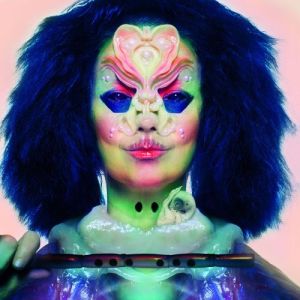
Utopia
Björk
One Little Indian
Björk’s latest album is her longest (clocking in at 72 minutes) and her most daring yet. On past recordings, cadres of female musicians with fierce chops held sway – employing French horns and strings. This time out, a dozen Icelandic flutists are the ensemble of choice. Alongside them is the electronic musician Arca, in an enhanced role as collaborator rather than appearing, as he did previously, once the songs had already been written. These performers are augmented by additional classical musicians and singers, making for a heady mix of timbres.
Where Vulnicura was about personal devastation – Björk’s breakup with her then-partner artist Matthew Barney, Utopia is about the returning of equilibrium, healing, happiness, and even romance. Thus, these two efforts demonstrate both sides of personal vulnerability; the musical differences are stark. Vulnicura’s “Black Lake” is a dark meditation of despair, whereas Utopia’s “Arisen My Senses” contains sensuous melodic lines and an arrangement replete with bird-calls and flutes. The songs on Utopia are intricately designed, containing beautiful variegated textures crafted with tremendous artistry. But the music displays lightness of touch too; indeed, it often floats. Björk’s voice retains a formidable range, both in terms of compass and of the myriad demeanors she flexibly coaxes from it.
Much has been made about Utopia’s ornate melodies and lack of rhythmic propulsion in the press; I would suggest too much. “The Gate” may be an extended track, but it has one of the most soaring, viscerally moving tunes in Björk’s catalog. Likewise, a noteworthy example where propulsive beats play a role is the fascinating “Courtship,” in which Arca puts skittering percussion alongside the flute choir and then juxtaposed against it. In the midst of this mix of sounds, Björk’s voice sits mid-register and the lyrics venture into a narrative “storytelling” mode.
Many stories are told in the course of Utopia. Often, they mirror the vocalist’s own experience of reentering the world of dating and relationships. That Björk at times approaches the idea of love with trepidation and at others with jubilation makes her willingness to share lyrics based on autobiography all the more touching.
In a year filled with revelations of abuse and betrayal, Utopia reminds us that just around the corner from desolation can be restoration and healing; one hopes many will take solace from the album’s message. I do, and In my opinion, it is the best pop recording of 2017.
